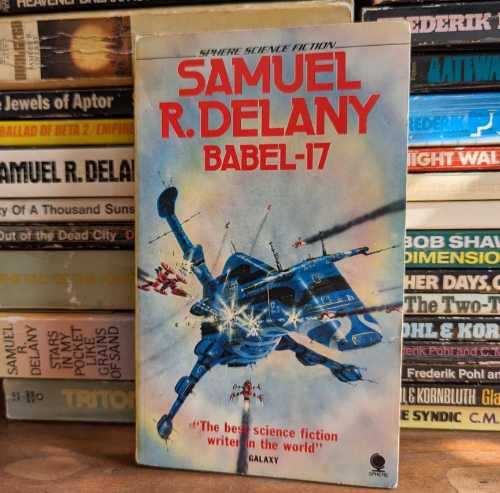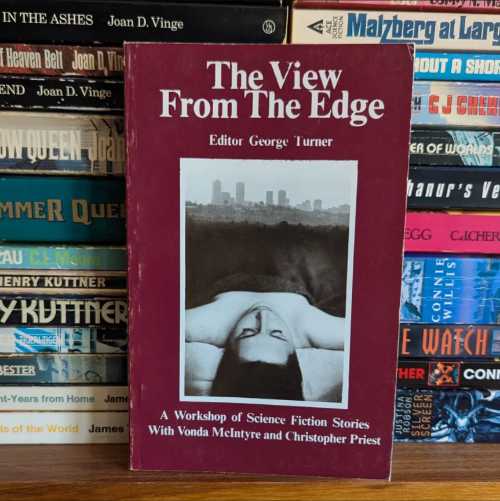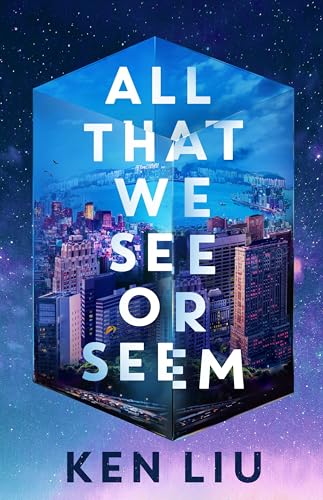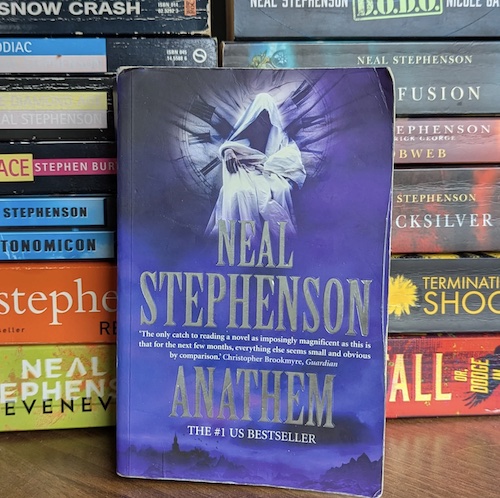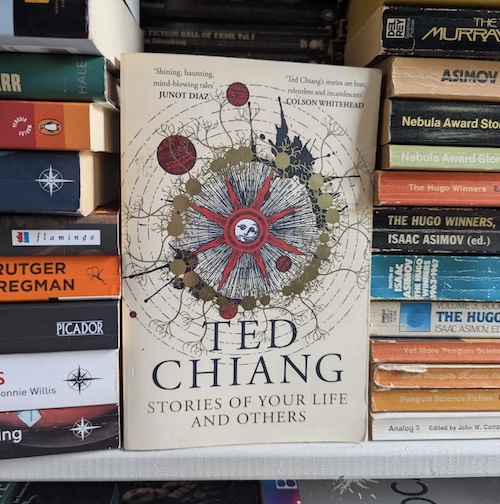Babel-17
★★★★★In the midst of interstellar war, a spate of terrorist attacks is accompanied by coded transmissions. The military calls in linguistics expert Rydra Wong, who realises that the signals are a language, Babel-17, which she determines to understand.
The plot centres around the Sapir-Whorf linguistic hypothesis - the concept that language determines the limits of our thinking. Babel-17 is a language that, by its very expansiveness, elevates human perception to a higher level. It’s a fascinating concept to explore in the era of large language models. One character, Butcher, has no word for “I” and hence no concept of self - until something is named, it doesn’t exist.
In a similar vein to Nova, Rydra assembles a ‘found family’ crew of misfits, body-modified adventurers, and even the dead. In sharp contrast to the pulp setting, Delany once again builds the narrative around tight interpersonal scenes rich with small evocative gestures - like placing a glass back down perfectly in its wet circle of condensation. He feels no need to describe the wide-angle, the background scenery; he’s laser-focused on the characters, their interaction, their body language. Rather than description, he builds feeling in his scenes with movement and gesture.
Although Rydra is a strong female lead, the love interest felt dissonant and wasn’t supported by her backstory. There’s also a casual attitude to, and pragmatic acceptance of, brutal violence that, for me, clashed with the light-hearted, roguish crew.
Delany’s future society is full of the fantastical but light on the rationale. It’s set within a familiar landscape of sci-fi tropes that he feels little need to enhance with exposition. There’s a sense of wonder in scenes such as the recruitment of the dead, which is created by the widescreen cinematic atmosphere rather than an intellectual scientific extrapolation.
Delany delivers another immersive, sensory experience. He pairs a classic rompy space opera with an intriguing thought experiment of how language is an interpretive lens which programs our reality.
